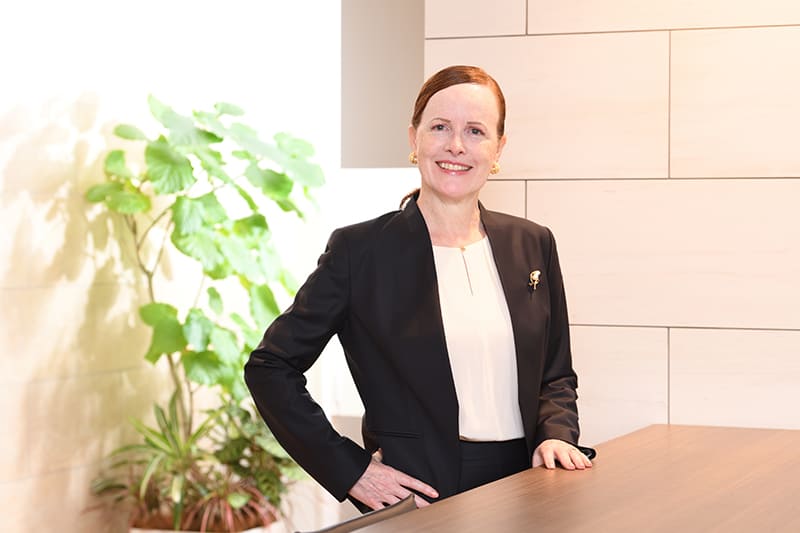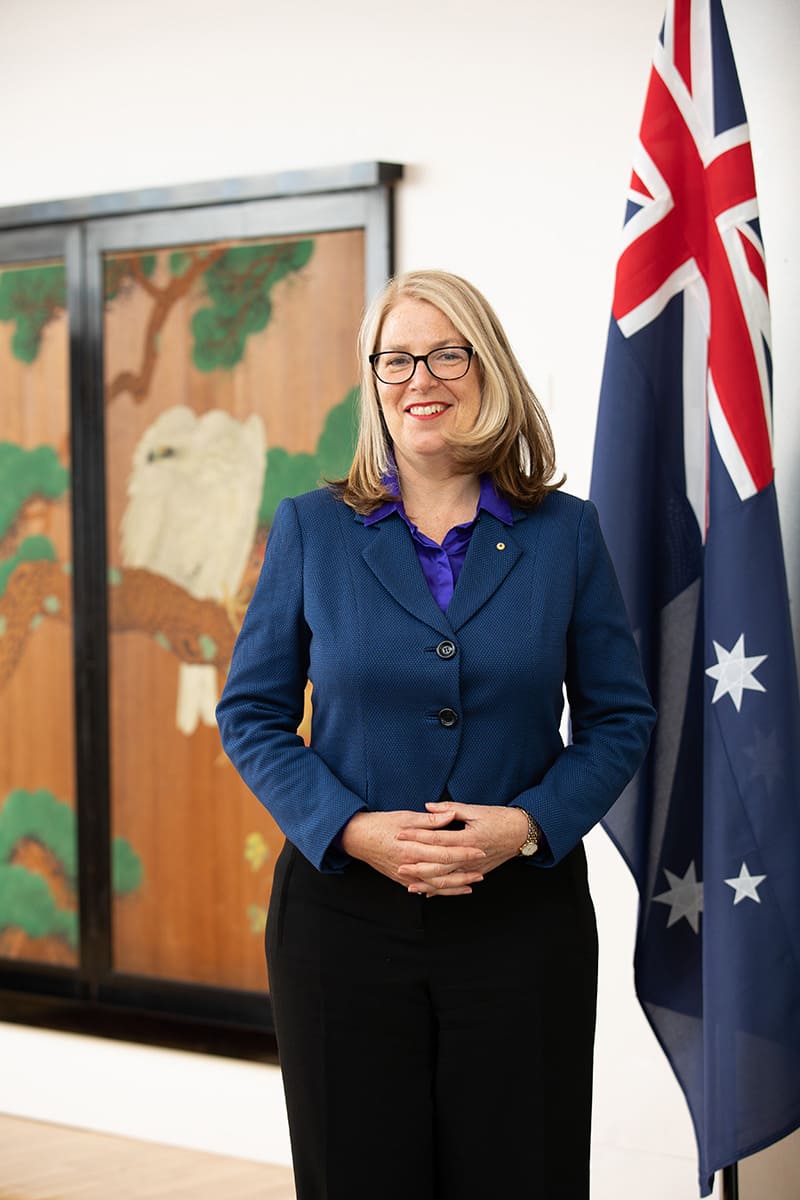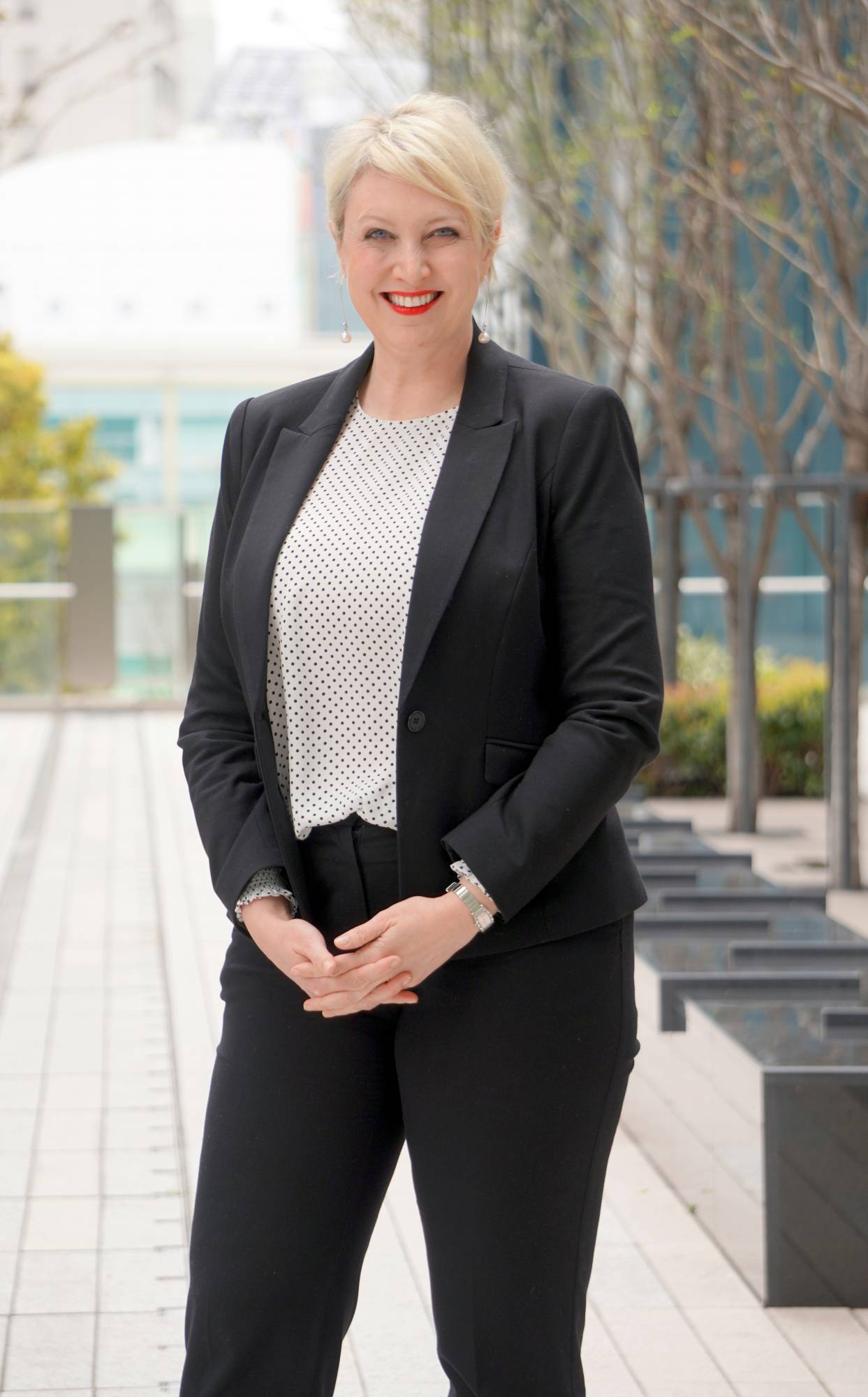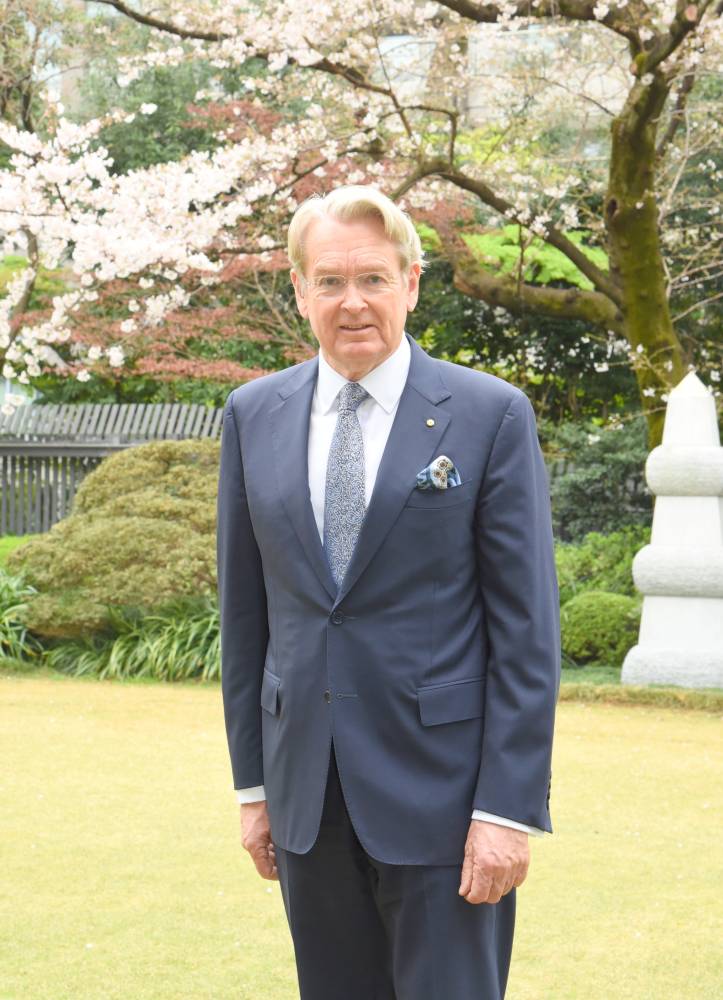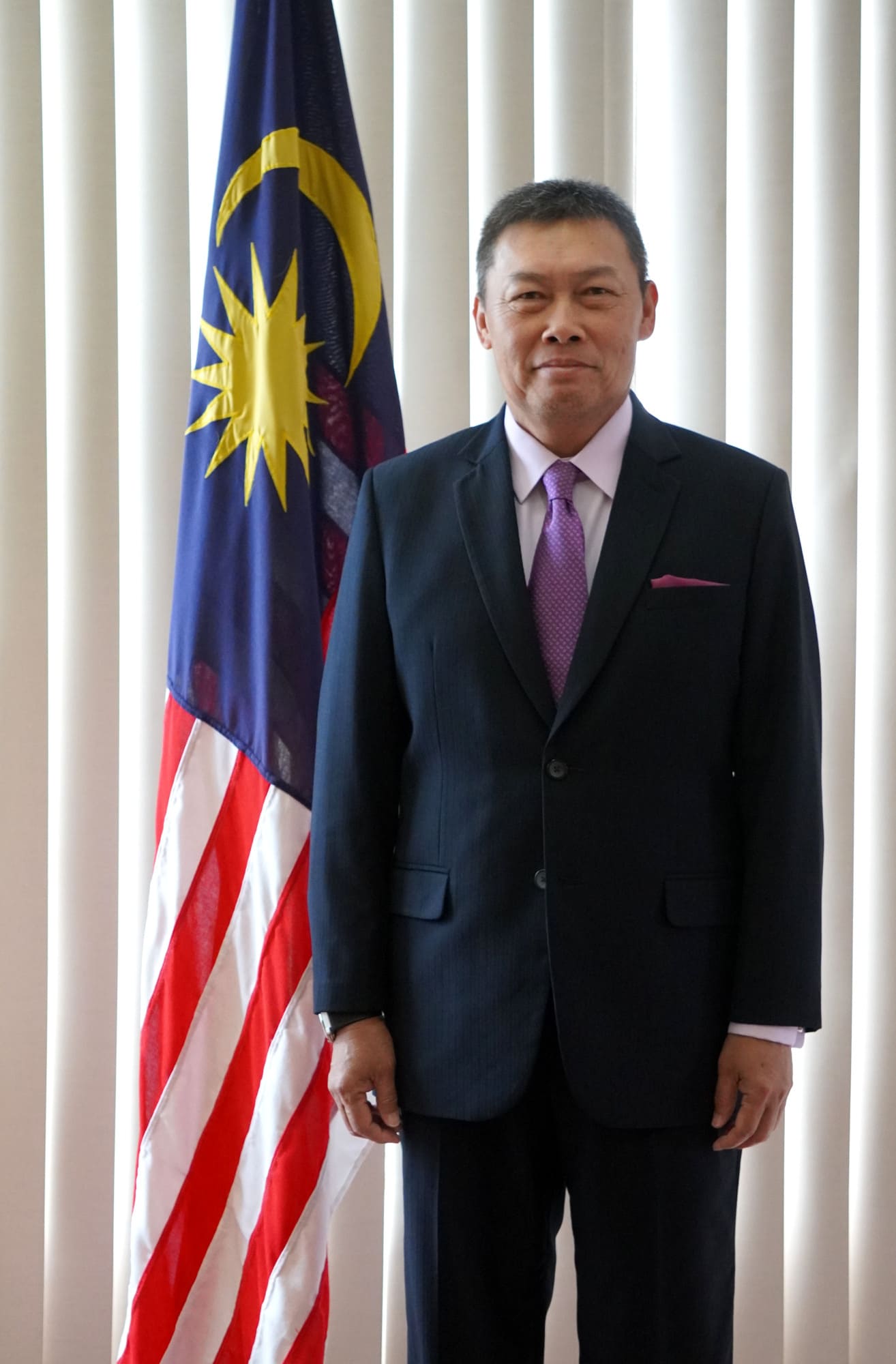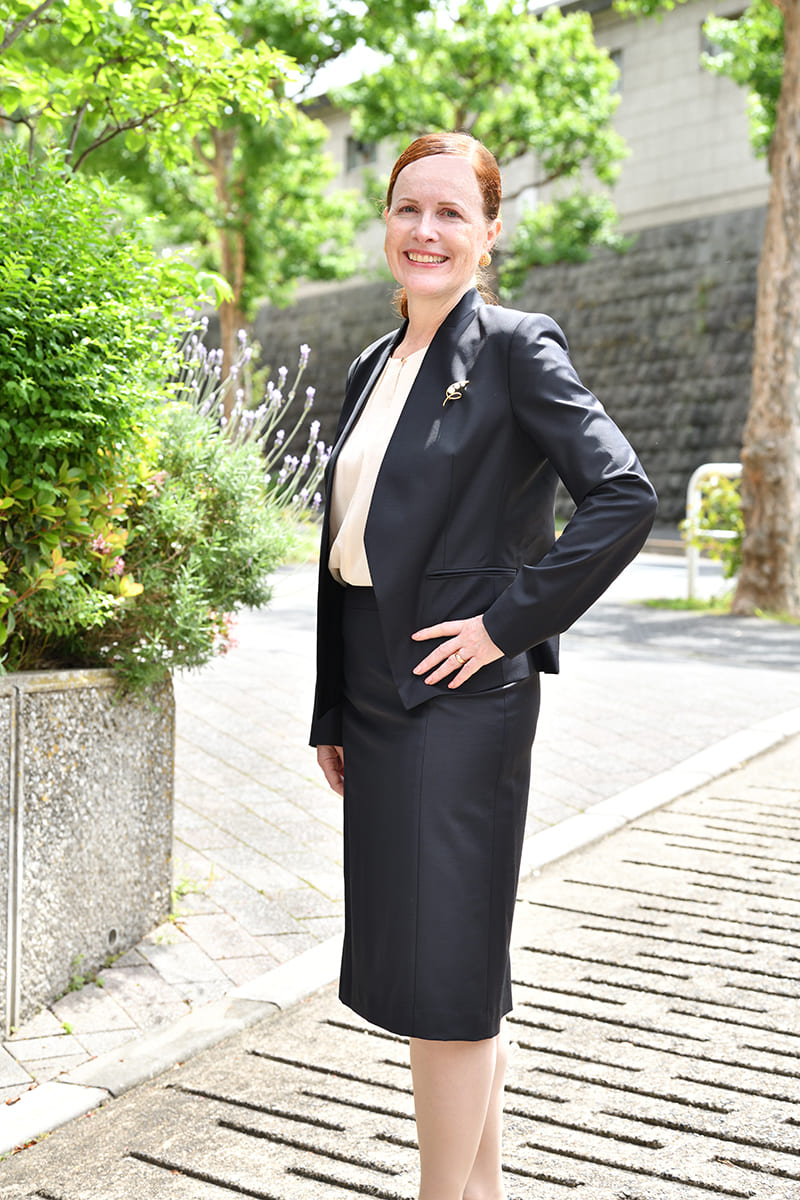
May 24, 2024
Hitotsubashi’s Catherine Wallace on business ethics
Professor studies and advises on interface between law and practice
- Name: Catherine Wallace
- Title: Specially appointed associate professor at Hitotsubashi ICS
- URL: https://www.ics.hub.hit-u.ac.jp/
- Hometown: Sydney
- Years in Japan: 20
As a Ph.D. student in her native Australia, Catherine Wallace was immersed in studying the effects of the thyroid gland on the development of wool follicles in fetal lambs. The path ahead of her was clear: years of lab research and scholarship in an area she can still discuss with verve. One problem, however, was the inevitable solitude. She needed interaction. In addition, while she embraced the wide applicability of science and excelled in zoology and biochemistry, she still did not know exactly which career was right for her.
Fast forward to the present, and Wallace is a professor of business ethics in the School of International Corporate Strategy at Hitotsubashi University, where she is the coordinator of the MBA program and oversees international student exchange. She has spent two decades working in Tokyo, first as a diplomat in Australia’s foreign service and later in consulting and higher education.
One year changed everything
Wallace’s journey into Japan started with a year on the JET Programme, which led to a “world-expanding” experience in foreign affairs and a relationship with Japan that only keeps increasing in intrigue.
“There is so much packed into this country. And I could spend multiple lifetimes here and I would only scratch the surface of it. The more I learn about Japan, the more Japanese language I learn, the more I realize how little I know. And through that process of finding out more, discovering more, I can better contribute to this country, because I’m very invested emotionally in Japan now. I’m very interested in Japan’s longevity, Japan’s success, Japan’s sustainability — and how I can contribute to them,” Wallace said.
Born in Sydney and raised in Canberra, Wallace had never been overseas when, as an undergraduate, she saw a flier advertising a hospitality work program in Japan. That program did not fit her interests — but a signal, via what she describes as a clear inner voice, had been delivered to her brain that getting to Japan was important. She still hadn’t quite figured out what to do, but she knew where to go.
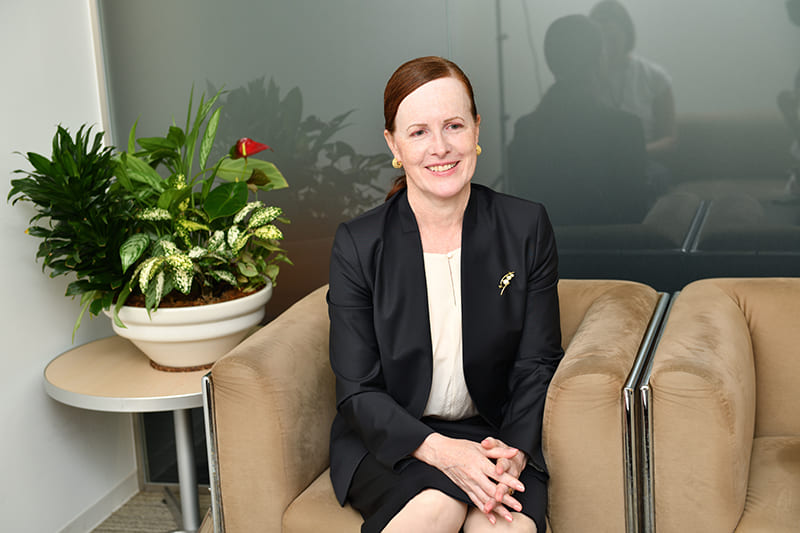
Agriculture to foreign affairs
Unsure of just how to get to Japan, Wallace embarked on the wool research, but later gave it up to join what was then the Department of Primary Industries and Energy (DPIE) under a competitive program for recent graduates. After a year of rigorous training in fields such as bilateral relations, Wallace chose to work in the Corporate Finance Division. In addition to an opportunity to hone her writing skills, the job offered chances to interact with various people and become involved with matters across the department’s scope, including international fisheries.
“That’s the area where I first came into contact with people from the Department of Foreign Affairs and Trade (DFAT), where I shared with them my aspirations to join their department, which was notoriously difficult to get into, not only for graduates, but just for vacancies generally. And they — in a sense, a particular person who was working with me on the Commission for the Conservation of Southern Bluefin Tuna, of which Japan and Australia are key members — that person in Foreign Affairs and Trade became a sort of mentor and champion for me to help me to transition to that department.”
During her time in DPIE, Wallace started taking Japanese lessons and actually found her way to the Ehime city of Niihama on the JET Programme. Upon her return to Australia, she set her sights on joining DFAT and one day returning to Japan. A self-confessed lover of learning and excellence, Wallace was, of course, successful in joining DFAT, where she immediately started applying for overseas postings to Japan. It was five years before she was successful, becoming political first secretary in Tokyo in 2006.
“I believed that four years living and working in Japan as a diplomat would either get Japan out of my system or else deepen my interest in Japan. No prizes for guessing that it turned out to be the latter. My diplomatic posting was a wonderful experience — I reported on important developments in the bilateral political relationship, covered Upper House elections and managed visits to Japan by the Australian foreign minister and a Senate delegation. My job was interesting, varied and busy, but I knew that a large part of why I loved what I was doing was because of where I was doing it.”
Insatiable interest in Japan
Allaying family concerns at walking away from the security of a career in the foreign service, which could only have become more decorated, Wallace found a job in Japan before relocating. She said that first job was not everything it was promised to be, but she worked as an editor, a consultant and in various English-teaching roles before moving into higher education.
Throughout her engagement with the country, she researched various aspects of Japanese labor law. Her sub-thesis for her graduate diploma was on the impact of the introduction of the Equal Employment Opportunity Act on work opportunities for female junior college graduates, while later research focused on amendments in 2012 to the Labor Contracts Act. The latter amendments, Wallace said, were intended to give security and benefits to workers who had spent years working under annual renewable contracts, but she found that while some employers were aware of the letter of the law, respecting the spirit of the law was a different matter. This led to her interest in ethical approaches to business.
Along the way, she has also developed an insatiable interest in Japanese history and ways to ensure that traditions endure for centuries to come. “One alarming [TV] program that I’ve seen many episodes of, is one in which they interview the last craftsman in Japan for that particular craft. And part of the reason why I’m looking for how I can contribute is because I don’t want to see that. That knowledge, that expertise, that ingenuity, innovation — I don’t want to see that disappear. Japan, over its history, has given so much to the world, so much amazing technology and innovation. There are initiatives that the Tokyo Metropolitan Government is putting forward, that the national government is putting forward, to help keep those things going. But I think we can still do more. We can do things at a faster rate. I just want to see those things that make Japan what it is, that make it different, that make it beautiful, maintained.”
